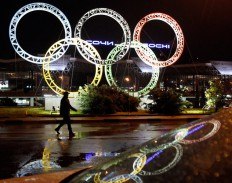EU-Russia relations, as many in Europe reckon, suffer from a lack of proper communication. This may sound paradoxical in an era of social media connectivity and cross-national mobility, with NGOs facilitating contacts between nations better than states.
A German-Polish-Russian “trialogue” seems to be a good case in point. It commenced with a meeting in 2009 in Kaliningrad between Foreign Ministers Westerwelle, Sikorski, and Lavrov. The whole idea was grounded in the compatibility of interests that exist between all three nations, despite specifics such as:
- For Germany, trialogues are part of a multilateral diplomatic effort in a region where Berlin has traditionally had strong stakes.
- For Poland, the political triangle gives the country a chance to reposition itself as a nation working together with its powerful Western and Eastern neighbors instead of simply being sandwiched between them.
- For Russia, these forums are one of the few remaining pathways to Europe.
Yet the trialogue concept is still very much a German-driven project, both financially and conceptually. It fits in nicely with the German notion of using soft power as a method to engage neighbors in communication (at the least) and in common agenda-setting (ideally).
Sometimes Russia gives reasons for perceiving itself not as a full-fledged partner, but rather as an "Oriental" addition to the Berlin-Warsaw axis. My colleagues in Berlin have complained many times of how hard it is to get any Russian funding for projects involving German partners. As a result, the majority of any so-called "joint" programs are funded mostly by German foundations.
Moreover, while participants of the recent Trilateral Youth Forum in Warsaw had a chance to visit the German embassy and informally talk to a Polish diplomat, the Russian embassy in Poland, though hosting some participants on the first day, ignored other parts of the event, particularly a final discussion that they had agreed to be part of but then withdrew with no explanation.
None of the eight sponsors of the Trilateral Youth Forum in Warsaw was Russian. Perhaps it would have been helpful had Russian diplomats known that while there were about 30 participant applications each from Germany and Poland, about ten times more came from Russia. This is definitely a good indication of Russia's interest in communicating with Europe.
Yet even if the Kremlin has so far displayed little interest in supporting trialogues, practical cooperative interests and initiatives exists. An example given by Milosz Zielinski (Foreign Policy Strategy Department at the Polish Ministry of Foreign Affairs) is when local Russian authorities in Kaliningrad, which will co-host the FIFA World Cup in 2018, expressed their interest in sharing experiences with Poland and Ukraine, both countries that co-hosted the World Cup games in 2012.
There are other issues of common interest. For example, Russia, being the second largest recipient of migrants in the world after the United States, desperately needs to learn more about the experiences of other countries such as Germany, which have faced similar problems and have managed to find solutions for how to successfully integrate immigrants. One useful aspect here is that what seem to be managerial and administrative experience-sharing also entails value-based effects, such as tolerance, respect for diversity, and human rights protection.
Perhaps the major achievement of the Trilateral Youth Forum in Warsaw was the clearly articulated idea that the future of all three countries, despite their differing institutional cores, are shaped by a similar dilemma, which is whether to go back to national sovereignties or to move forward into a new transnational and cosmopolitan world.
Indeed, debates on "normalization" in Germany bear certain semblance with Putin's project of "normalizing" Russia. Nationalist discourses in Hungary (Viktor Orban) and Poland (the Kaczynski brothers) are typologically similar to the Kremlin's rhetoric on nationalism. Perhaps it is solely Russia's scope and scale that make Europeans portray Russia as an exceptional country. My conclusion is that if those whom I have met at the Forum in Warsaw in the nearest future would shape the foreign policies of their countries, the chances for the Germany-Poland-Russia trialogue to become a shaper of a wider and a less divisive Europe are quite good.











